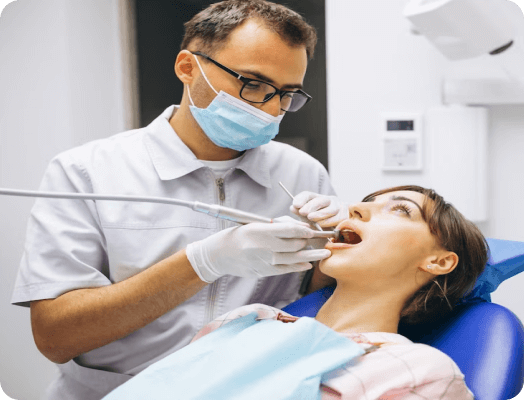Equip yourself with essential knowledge on managing dental emergencies
By webadmin

Equip Yourself with Essential Knowledge on Managing Dental Emergencies
Emergencies can strike at any time, and dental emergencies are no exception. Whether it’s a severe toothache, a knocked-out tooth, or a broken dental crown, knowing how to handle these situations can make a huge difference in pain management and long-term oral health. Here’s a guide to help you manage common dental emergencies effectively.
Common Dental Emergencies & Immediate Actions
1. Severe Toothache
A persistent toothache can be a sign of infection, decay, or gum disease.
-
Rinse your mouth with warm salt water to reduce bacteria.
-
Floss gently to remove any food particles stuck between teeth.
-
Take a pain reliever, but avoid placing aspirin directly on the gums as it can cause irritation.
-
Visit your dentist as soon as possible for a proper diagnosis.
2. Knocked-Out Tooth
If a tooth gets knocked out due to trauma or injury, quick action is essential.
-
Pick up the tooth by the crown (avoid touching the root).
-
Rinse it gently with water if dirty but do not scrub it.
-
Try placing it back in the socket; if not possible, store it in a container of milk or saline solution.
-
Seek immediate dental assistance within 30 minutes for the best chance of saving the tooth.
3. Broken or Chipped Tooth
A cracked or broken tooth can cause pain and sensitivity.
-
Rinse your mouth with warm water to clean the area.
-
Apply a cold compress to the face to reduce swelling.
-
Cover sharp edges with dental wax or sugar-free gum to prevent cuts inside the mouth.
-
Book an appointment with your dentist for repair.
4. Lost Filling or Crown
If a dental filling or crown falls out, it can leave your tooth vulnerable to damage.
-
Keep the crown safe and try to reattach it using temporary dental cement (available at pharmacies).
-
Avoid chewing on the affected side until you see your dentist.
5. Abscess or Swelling
An abscess is a severe infection that can spread if left untreated.
-
Rinse your mouth with warm salt water to relieve pain.
-
Do not attempt to pop the abscess.
-
Seek immediate dental treatment, as infections can spread to other parts of the body.
When to Visit the Dentist?
While first aid can provide temporary relief, it’s crucial to visit a dentist for a permanent solution. If you experience:
-
Persistent pain or swelling
-
Difficulty in chewing or speaking
-
Bleeding that doesn’t stop
-
Visible damage to a tooth
Seek emergency dental care immediately!
Preventing Dental Emergencies
-
Maintain regular dental check-ups.
-
Wear a mouthguard while playing sports.
-
Avoid chewing hard foods like ice and popcorn kernels.
-
Practice good oral hygiene to prevent decay and infections.
Emergency Dental Care at
We offer 24/7 emergency dental care to handle urgent cases with precision and care. Our experienced dental team ensures you receive prompt treatment to alleviate pain and protect your smile.
Need Emergency Dental Care? Call us now at [+91- 9643750957] or visit our clinic for immediate assistance.
Your oral health is our priority!



